Maschi e femmine, uomini e donne, gay e straight… chi sta in cucina, chi fa le pulizie, chi i lavori pesanti? E perché? Anche nei progetti internazionali gli stereotipi si cristalizzano: ecco un training per capirci di più!
“Fair Play: Dealing with gender issues in International Voluntary Service”
Background
Following Plan of Action 2015, Training Needs Working Group have initiated a survey on gender issues within the Alliance member organizations, questioning whether or not there is the need to address this topic within the network. As more than 20 organizations have answered the survey in a rather short period of time between Christmas and the New Year, expressing interest to join a seminar or a training course on gender issues, TNWG decided to make steps forward addressing this need. In support with IJGD, TNWG will submit application to Erasmus+ programme, in frame of Key Action 1, Mobility of Youth Workers, in February deadline.
Description
Workcamp was created after First World War as an educational tool to bring young people back together and help the process of reconciliation in destroyed Europe. Ever since, organizations have been facing various challenges among participants. Language barriers, cultural differences and working habits were much more obvious, compare to gender issues, which often ended up under cultural differences. Even though many workcamp leaders notice gender misunderstandings in the camps, they often neglect their importance, or simply lack the skills in order to address it. Situation in the camps where someone didn’t want to cook or clean because he was a boy, difficulties with empowering girls to take more space and to try out new things, as well as power imbalance among the leaders of the camp or with the project manager because of gender were some of the problems reported by the organization which took part in the survey. Therefore, this training course has set for its aim to address these issues during a 6-days-long programme with an international team of trainers experienced in related topics.

Aim
To empower workcamp leaders and support staff of Alliance member organizations by giving them the tools to deal with and to prevent gender-related conflicts and misunderstandings during IVS projects. During the training course we will discuss boththe causes of gender-related problems and how to address them, so that the IVS projects can become more fair and safer spaces for all participants.
Objectives
to develop basic understanding regarding gender roles (masculinities, femininities, others?) and social expectations
to learning key terms through an introduction into gender issues
to develop ability to identify different forms of discrimination in their workcamps and everyday lives (psychological, sexual harassment, spiral of conflict before it develops into physical violence, structural violence);
to develop specific skills and ways to react in situations of gender-related misunderstandings or conflicts.
Target group
We would like you to make a pre-selection within your organization among workcamp leaders, trainers of workcamp leaders, support staff, as we believe that this training is addressing a special audiance and you are the once who know needs of your staff and volunteers better than anyone.
Time plan and venue
Date of the training: 8-15 July 2015 (including arrival and departure day)
Venue: Solingen (near Bonn/Cologne), Germany
Duration: 6 working days + 2 travel days

Financial aspects
Italian participants should be Lunaria members: the membership card is 30€ to be issued as explained here.
Accommodation and lodging are 100% covered by the Erasmus +
Travel expenses are covered within the range given by the European Commission and according to distance from the training venue:
100-499km = 180€
500-1999km = 275€
2000-2999km = 360€

How to apply?
Fill in the Application Form (Fair Play) and send it to following two addresses June 8th:
scambi@dev.lunaria.org dusan.milojevic@ijgd.de and duschan.milojevich@gmail.com
In case of any questions, please do not hesitate to contact one of these two e-mail addresses.




